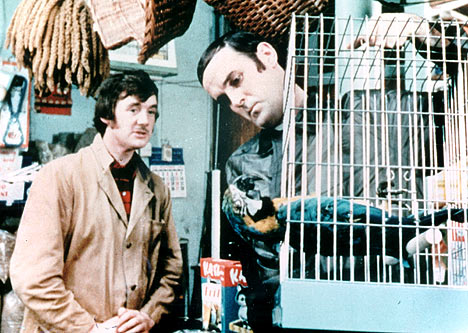Britain Day isn't dead, it's just resting.
 It seems that the death knell for a national day sounded prematurely yesterday. The BBC reports Labour rowing back on Michael Wills’ previous statement. O’Neill is suitably scornful of the mixed messages issuing from government. It does rather reek of, ‘what the minister meant to say ………..’.
It seems that the death knell for a national day sounded prematurely yesterday. The BBC reports Labour rowing back on Michael Wills’ previous statement. O’Neill is suitably scornful of the mixed messages issuing from government. It does rather reek of, ‘what the minister meant to say ………..’.Tim Luckhurst mirrored my own error by assuming that Wills’ statement actually reflected government policy. On ‘Comment is Free’ he advances a puzzling argument that in abandoning plans for a ‘British day’, Brown indicated that he no longer needs ‘Britishness’ as a concept.
Now that it transpires the government has not ditched the idea, Luckhurst’s point is moot, however the insinuation that such a day would galvanise Britons around British identity or that it would help to shape a ‘British narrative’ remains.
The author mentions July 5th, the date of formation for the NHS in 1948, and September 15th, which carries historical resonance, both as a high-tide mark in the 1940 Battle of Britain and as the birth date of a great (perhaps the greatest) Briton. His suggested dates allude to important aspects of the national story and represent laudable values and institutions intrinsic to our United Kingdom. But would it strengthen a sense of belonging to impose a contrived holiday, engineered by the government, on these days?
My view is that government’s job is to facilitate and nurture a sense of British identity, rather than imposing its vision of that identity on its people. If a strong, vibrant, healthy society is encouraged and Britain’s constitutional fabric is cherished, then feelings of common identity will necessarily and quite organically become stronger.
Rather than focussing on gimmicks, Gordon Brown and his ministers should concentrate on making Britain a place to be proud of and protecting the integrity of its institutions.
There is a role to be played by government arguing the centrality of Britishness to the peoples of the United Kingdom, as well as the imperative of maintaining the Union for the good of its constituent parts. That is to be achieved by a dialogue with citizens, rather than social engineering.
Comments